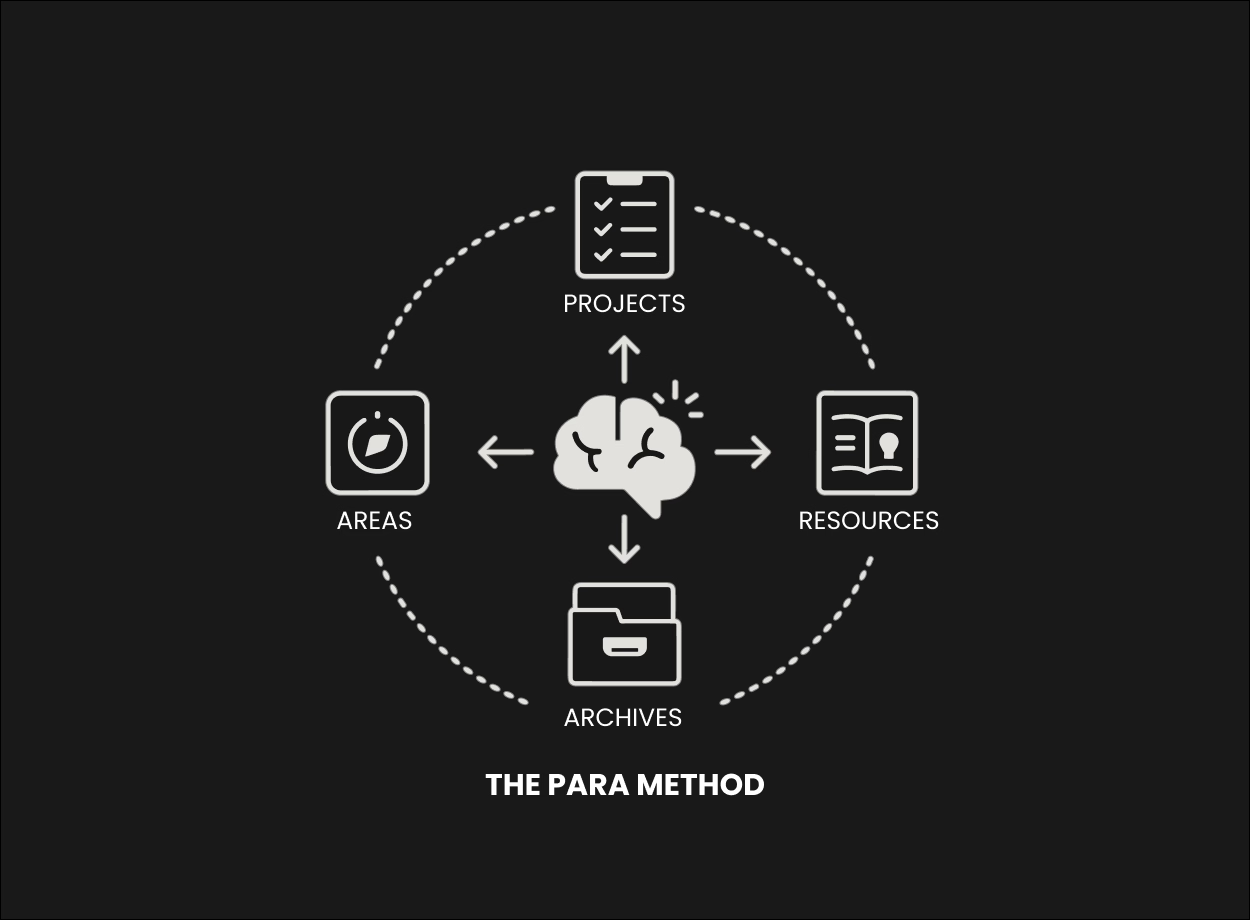The mind excels at creation, not recall. Tiago Forte revealed something fundamental about this aspect of human cognition in his bestseller 'Building a Second Brain.'
Most musicians burn precious mental cycles storing information, gig dates, contact lists, half-formed song ideas scattered across different apps and voice memos. It’s like using a Ferrari to haul groceries. Your mind's highest function is creative synthesis, not data retention.
When you externalise storage, you liberate the processor. Suddenly, instead of wrestling with 'What was that chord progression I hummed last Tuesday?', your brain is free to make unexpected connections and focus on creation. To this end, Tiago Forte, the author of 'Building a Second Brain,’ champions a knowledge management system called the PARA method.
The PARA method organises your work and creative life into four categories:
- Projects: Time-bound efforts with a clear beginning and end (like releasing an EP, booking a tour, or creating a music video)
- Areas: Ongoing responsibilities that require maintenance (like social media presence, fan engagement, or technical skills)
- Resources: Information and inspiration you collect (reference tracks, production techniques, or industry contacts)
- Archives: Completed projects and inactive items for future reference
In Musician OS, I’ve adapted the PARA method to be more of a productivity system with powerful knowledge management baked in. This focus is primarily on Projects, Tasks & Resources (which are split between Notes & Seeds), with Areas providing the broader context for your work.

